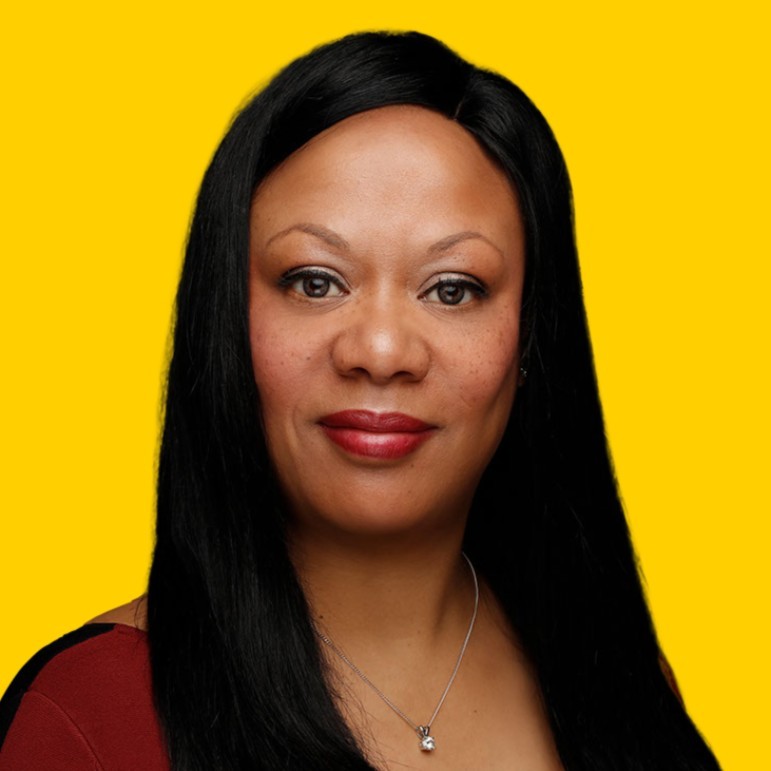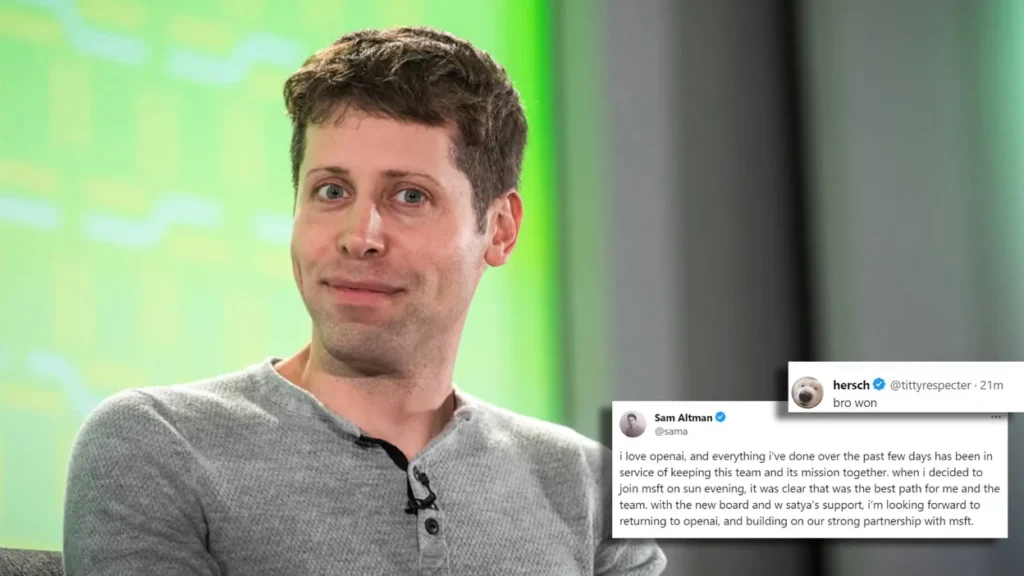According to reports, an incredible 95% of OpenAI’s staff threatened to quit following his removal, sparking a wave of chaos at the company.
Altman has agreed to make a comeback as the CEO of OpenAI, and the company disclosed a preliminary agreement for Altman’s return, coupled with the formation of a new initial board.
Bret Taylor, former co-CEO of Salesforce, is set to take on the role of chairman, and the board will see additions such as Larry Summers, former Treasury Secretary, and Adam D’Angelo, the current CEO of Quora.
As discussions on the details of this agreement continue, social media feeds are buzzing with the news, capturing the attention of the AI community and beyond. The announcement on X, formerly Twitter, has ignited conversations and speculation about the implications of Altman’s return and the potential shifts in OpenAI’s strategic direction.
Altman, in his own post on X, expressed eagerness about rejoining OpenAI and emphasized his commitment to enhancing the firm’s robust partnership with Microsoft, the primary financial supporter of ChatGPT, OpenAI’s flagship language model.
This revelation marks the end of a tumultuous period for the AI industry, punctuated by negotiations around OpenAI’s leadership, organisational structure, and broader discussions on the accelerating pace of advancements in AI technology, resonating widely across social media platforms.
While OpenAI may not have direct ties to the insurance industry, its advancements in artificial intelligence (AI) and natural language processing have broader implications. OpenAI’s developments, such as ChatGPT, have the potential to impact various sectors, including insurance. The technology could be leveraged for improving customer interactions, claims processing, and data analysis. Insurers may explore partnerships or applications of OpenAI’s innovations to enhance efficiency, decision-making, and customer experiences.
Additionally, as AI continues to evolve, insurers may monitor OpenAI’s progress for insights into emerging technologies that could shape the future of the industry.

Sabine VanderLinden, Co-founder, CEO and Managing Partner of Alchemy, voiced her take on the matter over Linkedin, saying: “In an unprecedented turn of events, Sam Altman is set to reclaim his role as CEO of OpenAI.This decision marks a reversal from the recent turmoil that saw Altman ousted, highlighting the dynamic and sometimes tumultuous nature of leadership in tech. OpenAI’s statement confirms an “agreement in principle” for Altman’s return, alongside a reshaped board featuring Bret Taylor, Larry Summers, and Adam D’Angelo.”
She went on to say that the board’s “primary task is establishing a new, formal governance structure, reflecting OpenAI’s commitment to adaptability and strategic foresight in a rapidly evolving AI landscape. Microsoft, a key investor with over $10 billion in OpenAI, is expected to have significant representation in this new governance.”
Margaux Giles, CEO and cofounder of IRYS, also opined, noting that the culture at OpenAI must be considered in the equation. She stated: “How many CEOs out there could say with a straight face that if they were ousted right now the ENTIRE company would walk with them? That my friends is the power of company culture, and we are all getting a masterclass on why it’s critical to a business’s success.”
Giles added: “The ability to create a vision and cultivate purpose for each individual employee to feel connected and aligned to not just the leadership but the company’s goals, is truly a super power. And, it’s incredibly rare.”
Did the War on Talent contribute to reinstatement?
Microsoft’s announcement of Altman and co-founder Greg Brockman leading a new AI research division was met with internal uproar. Threatened by a mass exodus, almost the entire OpenAI staff demanded the board’s resignation and Altman’s reinstatement. The impact of Altman’s return on interim CEO Emmett Shear remains uncertain.
Dr. Andrée Bates, CEO for Eularis, pointed out that the war on talent may well have played a key role in the swift 360 degree turn of OpenAI’s board decision to remove Altman. She said: “After a big proportion of OpenAI staff announcing that they would leave to go to Microsoft with him, I don’t see this as entirely unexpected. If he went to Microsoft and most of the brainpower at OpenAI left with him, the value of OpenAI would plummet so there was no other choice. A great example of leadership!”
As the debate continued to rage on, VanderLinden concluded: “Altman’s reappointment is a testament to his vision and leadership. It underscores the importance of having leaders who are not only technologically adept but also capable of steering complex organisations through challenging times. This move signals a potential new era of stability and innovation for OpenAI, as it continues to be a significant player in shaping the future of artificial intelligence.”
Altman’s dismissal and subsequent reinstatement by OpenAI remains shrouded in mystery. The company cited Altman’s alleged lack of “candour” with the board, sparking speculation. Tensions between Altman’s push for aggressive AI development and the original OpenAI board’s preference for a more cautious approach played a pivotal role in his removal, as revealed by CNN contributor Kara Swisher.
Brockman reportedly expressed satisfaction on X, saying, “I am deeply pleased by this result, after (some) 72 very intense hours of work … I’m glad to have been a part of the solution.”
He is also reportedly returning to OpenAI, according to his post on X.
Author: Joanna England









